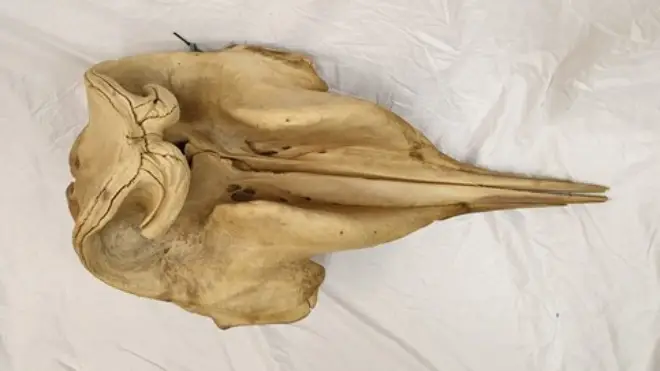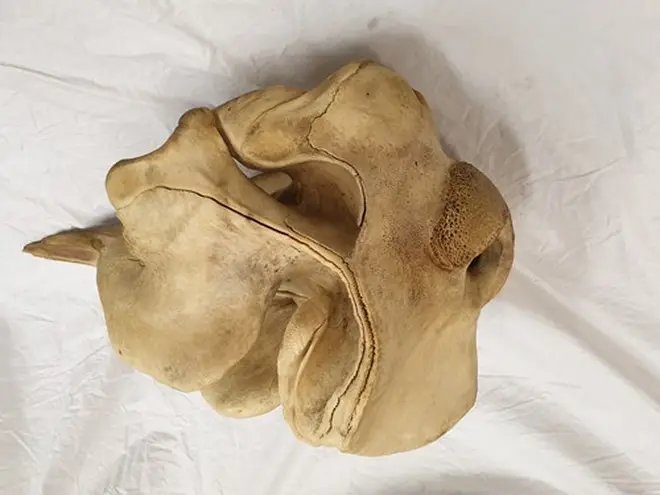
Paul Brand 10am - 12pm
18 December 2020, 19:01

Police are hunting for a "rare" whale skull that was taken from a beach in northern England, which experts had hoped to study.
Officers for Police Scotland said the bones were removed from Cocklawburn Beach near Berwick-upon-Tweed at some point between 19 and 22 October.
Remains of the northern bottlenose whale originally washed up near Cape Wrath in the far north of Scotland in 2018, which is why Scottish officers are involved in the investigation.
The carcass was then moved to the northern English beach in October, where it was being monitored by the John Muir Trust.
It planned to remove the 45kg skull - that measures 100cm x 60 x 60 - to National Museums Scotland where it would have been studied by experts.
Read more: Cafes and shops to reopen in Scotland as Covid measures eased
Read more: Secondary school exams in Scotland cancelled next year over Covid

Detective Sergeant Billy Telford, of Police Scotland's wildlife crime unit, said: "Whales, dolphins and porpoises are protected species in Scottish/UK coastal areas, and this includes their remains.
"People may not be aware that it is illegal to remove their remains from beaches and other coastal areas.
"This particular item had been earmarked for study.
"It is a rare example of this species in Scotland and therefore is of significant scientific interest to improve both our understanding of the species and its protection.
"It is a very big and unusual item and someone must know of its whereabouts. If you do then please contact Police Scotland so we can arrange for its return to the museum."
Read more: PM 'hopes to avoid' third lockdown but doesn't rule it out
Read more: Only 'very narrow' path to Brexit trade deal remains - Barnier
We are appealing for info to locate a missing whale skull belonging to a northern bottle nose whale and measuring 100 x 60 x 60cms which was left on Cocklawburn Beach near Berwick-upon-Tweed in October.
— Police Scotland (@policescotland) December 18, 2020
More info ➡️ https://t.co/ctMe6yHkwI pic.twitter.com/SefY4OO6ic
In Scotland, it is illegal to possess any part of a whale, dolphin or porpoise without having a licence. Any remains belonging to such species should not be removed from coastal areas.
Andrew Kitchener, principal curator of vertebrates at National Museums Scotland, said: "It is important that this skull of a bottle-nosed whale is returned so it can be added to the internationally significant collection of marine mammals which we hold at National Museums Scotland.
"Strandings of this mammal are rare and examples such as this can contribute greatly to the knowledge we hold about these incredible animals and provide a valuable resource to enable further future scientific study of the species and its ecosystem."
Officers have been using other methods of enquiry before issuing their appeal for information on Friday.